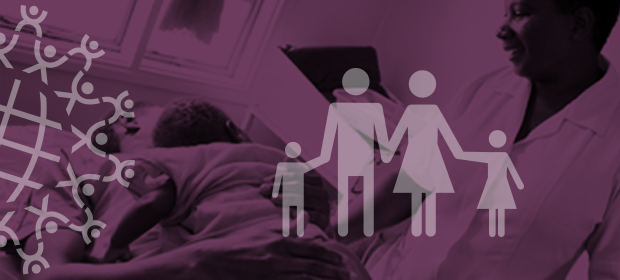Where We Work
See our interactive map


Over 350,000 new contraceptive users were added in 12 cities throughout francophone West Africa over the past five years. The Challenge Initiative’s (TCI) West Africa Hub, led by IntraHealth International, contributed to these results by working with local health systems, young people, religious and government leaders, and community health workers to increase access to family planning.
Since 2016, TCI’s francophone West Africa Hub has used a comprehensive approach to improve contraceptive use in five countries: Côte d’Ivoire, Benin, Burkina Faso, Senegal, and Niger. In partnership with municipalities and local health systems, the hub expands access to family planning by supporting the implementation of high impact interventions such as universal referral and post-partum family planning while also working to make those services more youth friendly. To create demand for services, the Hub supports local community-based organizations, youth ambassadors, and religious leaders to promote the benefits of family planning, dispel myths and rumors about contraception, and encourage male involvement in family planning decisions.
“We use high-impact interventions—including universal referral and free family planning days—to reach women and girls with critical family planning services,” says Hawa Talla, IntraHealth’s leader of TCI in West Africa. “And I’m so proud that we’ve been able to make sure they have access to family planning services and know their options when it comes to contraception.”
TCI cities in francophone West Africa have been able to increase access to family planning services with technical support from the Hub team. For example, the Hub developed a training manual and printed job aids for health workers to implement the universal referral intervention, an approach in which every woman of reproductive age who visits a health center is asked about her familiarity with and desire to use family planning. If she’s interested, she can receive services the same day. Over 2,300 health workers were trained on this approach in 910 health facilities. Because of this, over 1,670,000 women of reproductive age received family planning messages and the approach contributed to recruiting 46.8% of new family planning users.
“We’ve found that working with young people, religious leaders, community health workers, and others has helped change the way we talk about family planning in francophone West Africa,” says Talla. “It’s clear people now understand what family planning is and how to access it.”
TCI trained more than 600 young people on transformational leadership, advocacy, and how to participate in reproductive health and family planning programs. The young leaders developed and implemented advocacy plans and participated in family planning and reproductive health decision-making bodies in their regions. As a result of their advocacy, these young leaders also reduced the costs of family planning services, mobilized financial resources, and provided free coupons for family planning to increase access to sexual and reproductive health information, services, and products.
Government engagement is a key component of TCI’s approach and the West Africa Hub connected with mayors who invested in family planning programs and participated in health facility visits and meetings with health workers and youth leaders. Including mayors in local family planning efforts led to an increase in funding, initiatives, workshops, and community dialogues.
Local governments are also routinely assessing the management and sustainability of their family planning programs with the RAISE (Reflection and Action to Improve Self-Reliance and Effectiveness) tool introduced by TCI. Based on the results, they implement course correcting actions.
TCI also worked closely with local partners and officials in francophone West Africa to adjust in real time to COVID-19 by following a “business unusual” model, in which cities ensured sustained access to family planning in urban areas despite the pandemic for lasting and cost-efficient results. To do this, the Hub integrated family planning and infection prevention messages through their “I Choose” communications campaign (using testimonials from mayors, health workers, men, women, and adolescents on why they chose family planning), trained local health workers to help community members conduct home visits (decreasing congestion at health facilities), offered universal referrals, provided remote data collection and analysis coaching to city staff, and created opportunities for remote learning and exchange.
Throughout the last five years, TCI updated their website with helpful information and news. You can access all content here or read more:
TCI worked through four regional hubs, including the Francophone West Africa Hub, which is led by IntraHealth International and funded by the Bill & Melinda Gates Foundation. The Johns Hopkins Bloomberg School of Public Health leads The Challenge Initiative. Two Hopkins-affiliated institutions, Jhpiego and the Center for Communication Programs, and the India office of Population Services International (PSI) also serve as in-country accelerator hubs.



